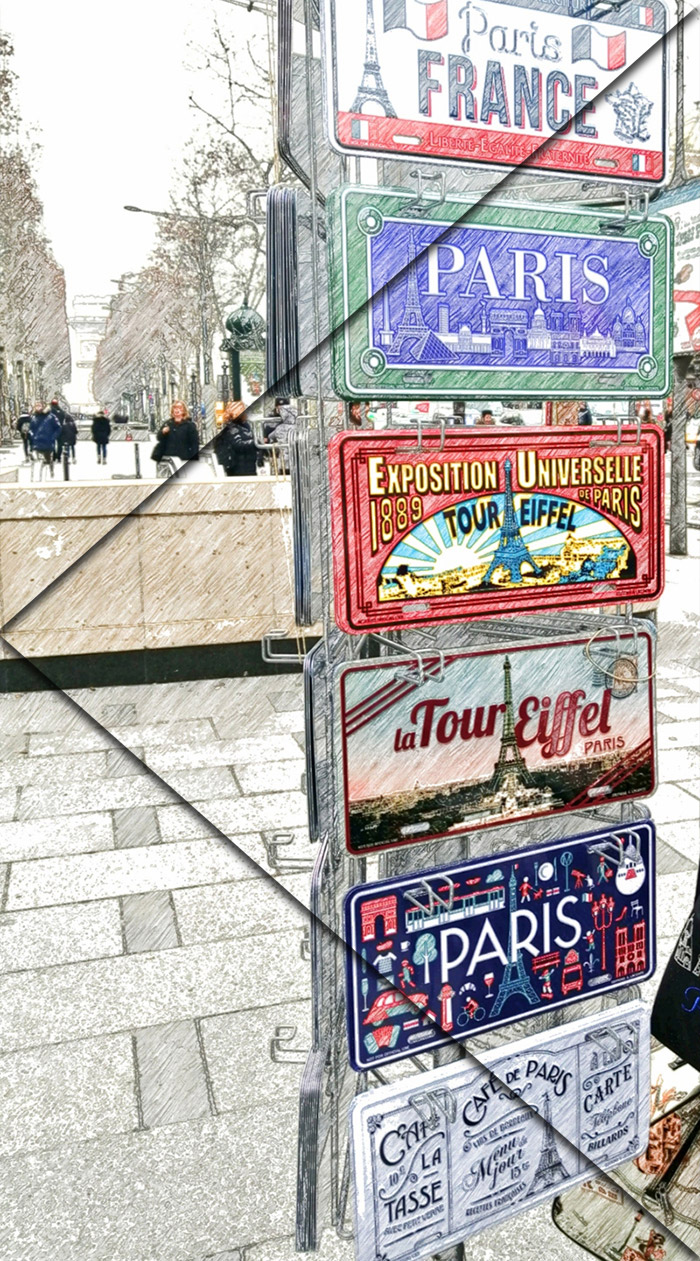Living in Paris, the most beautiful city in the world
With 20 arrondissements, millions of residents, and a metro network boasting over 300 stations and 14 main lines, the Greater Paris area is a colossal urban hub. Despite its bustling nature, it hides many picturesque and tranquil spots, both on the Rive droite, the "right" (northern) side of the Seine, and the Rive Gauche, the "left" side south of the river's course. However, Paris itself isn't expansive; covering approximately 105 square kilometers, it's just about 15 times smaller than London and doesn't even make up 12% of Berlin's area. Navigating from one point to another is a breeze thanks to the extensive metro network, which significantly contributes to the city's heartbeat and increasingly extends into the suburbs. The unspoken rule "Where there is a metro station, there is Paris" is a criterion for many house hunters, as living near the Eiffel Tower or within walking distance of the Louvre remains an elusive dream for many.
Life in Paris is costly, and the regular search for accommodation in the city by providers such as Airbnb has become even more difficult.
Although the suburbs are attractive, not everyone wants to settle down there, in the “banlieue“.
I will help you find an apartment in Paris. Even if you cannot be on-site!
The Parisian districts
The Louvre is very prominent in this central and old district.
The smallest of all districts hosts the cinema Le Grand Rex.
Central residential area and tourist magnet with its famous Marais.
One of the oldest neighbourhoods, including the Paris City Hall and Notre-Dame.
The oldest district, famous for its Latin Quarter and the “Hall of Fame“ Panthéon.
Saint-Germain-des-Prés and the park Jardin du Luxembourg attract visitors.
High priced district and home of the Parisian landmark - the Eiffel Tower.
The President’s office and the Arc de Triomphe can be found here.
North of the city center and home of the Opéra Garnier.
Junction with two main rail stations and picnic suitable around the Canal Saint-Martin.
Home of the Place de la Bastille, this eastern district is the cradle of the French Revolution.
Less touristy, rather a residential area with its Opéra Bastille.
Here you can find the "Chinatown of Paris" and the national library of France "François Mitterrand".
Southern periphery with the second tallest building in town, the Tour Montparnasse.
The most densely populated district with many attractions at the Paris Expo Porte de Versailles.
Everyone knows "The 16th", including its tennis court Roland Garros and the forest Bois de Boulogne.
Heterogeneous district in the northwest with the small, fine park Square des Batignolles.
Well known for its ethnic diversity and home of the basilica Sacré-Cœur.
Modern architecture and a lot of space around the Géode invites for leisure time.
Traditional working-class district in the eastern periphery and the heart of the cemetery Père Lachaise.
Tips for finding an apartment in Paris
In general, living in Paris has something masochistic about it: For 30sqm, one can expect to pay upwards of more than € 1,000, and musty apartments on the sixth floor without a lift are said to be "charming". Many expectations of living high above the rooftops like Amelie are dashed by the reality of the high cost of living. In the trendy Montmartre the streets are not the only things that are steep...
Below is a rough overview in terms of rent and corresponding square meters. The figures are not unusual in Paris and can of course tend upwards and downwards. Please pay attention when an apartment around 20 square meters in the center of Paris is offered for € 500:
Student
- 1-room apartment with kitchenette ("studio")
- rent € 800-1000
- size 20/25 square meters
Employee
- 2-room apartment
- rent € 1,000-1,300
- size 35/40 square meters
Couple with child
- 3-room apartment
- rent € 1,300-1,800
- size 45/50 square meters

If you want to find an apartment in Paris, you need to compromise. Not just on where to live, also to accept high costs for low quality. If you have high expectations, in Paris you need to adjust them.
Before moving, many also ask which districts in Paris should be avoided. There is no general answer to this question, because, as in any big city, common sense helps to avoid some critical situations. Nevertheless, the lively Barbès-Rochechouart can certainly not be compared with the chic 16th arrondissement.
Helpful portals in the search for apartments in Paris are for example SeLoger.com, LeBonCoin.fr or PaP.fr - but beware, some advertisements in the classifieds are a scam.
For many landlords and also agencies, it is important not to spend too much time looking for a tenant (or buyer). Therefore, on the basis of a dossier (application folder), it is quickly clear with which prospective tenants it is worthwhile to make an appointment for a viewing. Of course, a likeable appearance, along with punctuality, are also important criteria for having a chance of finding an apartment in general. But the proof of creditworthiness in the dossier is clearly the most important criterion.
What should the application folder contain to find an apartment in Paris?
In addition to providing financial information, it is often necessary to list a guarantor in your dossier, especially for students or if one's own income is not so attractive. Depending on the personal situation, the guarantor also has to provide the same documents to prove his financial situation.
Nevertheless, landlords are increasingly taking out insurance against loss of rental income (“assurance loyer impayé“ or “garantie loyer impayé“), making a classic guarantee superfluous. Looking for an apartment without proof of income or a permanent employment contract can be an obstacle to obtaining a lease.
The certificate of a bank account, known as the RIB (relevé d'identité bancaire), is no longer one of the documents that can be legally required. However, in practice, many landlords still request it due to the extremely competitive real estate situation in Paris. While this requirement could potentially lead to fines, it's often challenging for tenants to file a complaint when there is a pressing need for housing.
Basic documents for almost every applicant:
- Copy of the identity card or passport
- Proof of current address
- The last 3 rental documents or confirmation that you are the owner
- Last tax notice
Additionally, important for employees:
- Copy of the employment contract
- Proof of income: The last 3 salary statements
Important for self-employed:
- Proof of self-employment (for example business registration)
- Proof of income: The last 2 balance sheets or proof of financial resources
Important for pensioners:
- Pension evidence
- Proof of income: The last 3 pension payments
Important for students:
- Certificate of registration
- Copy of student ID
In many cases, full or certified translations into French are not necessary. It is often sufficient to highlight important points in foreign-language documents, e.g., relevant names and amounts.
I wish you every success in your search! If there are pitfalls, I will be happy to offer any assistance!




